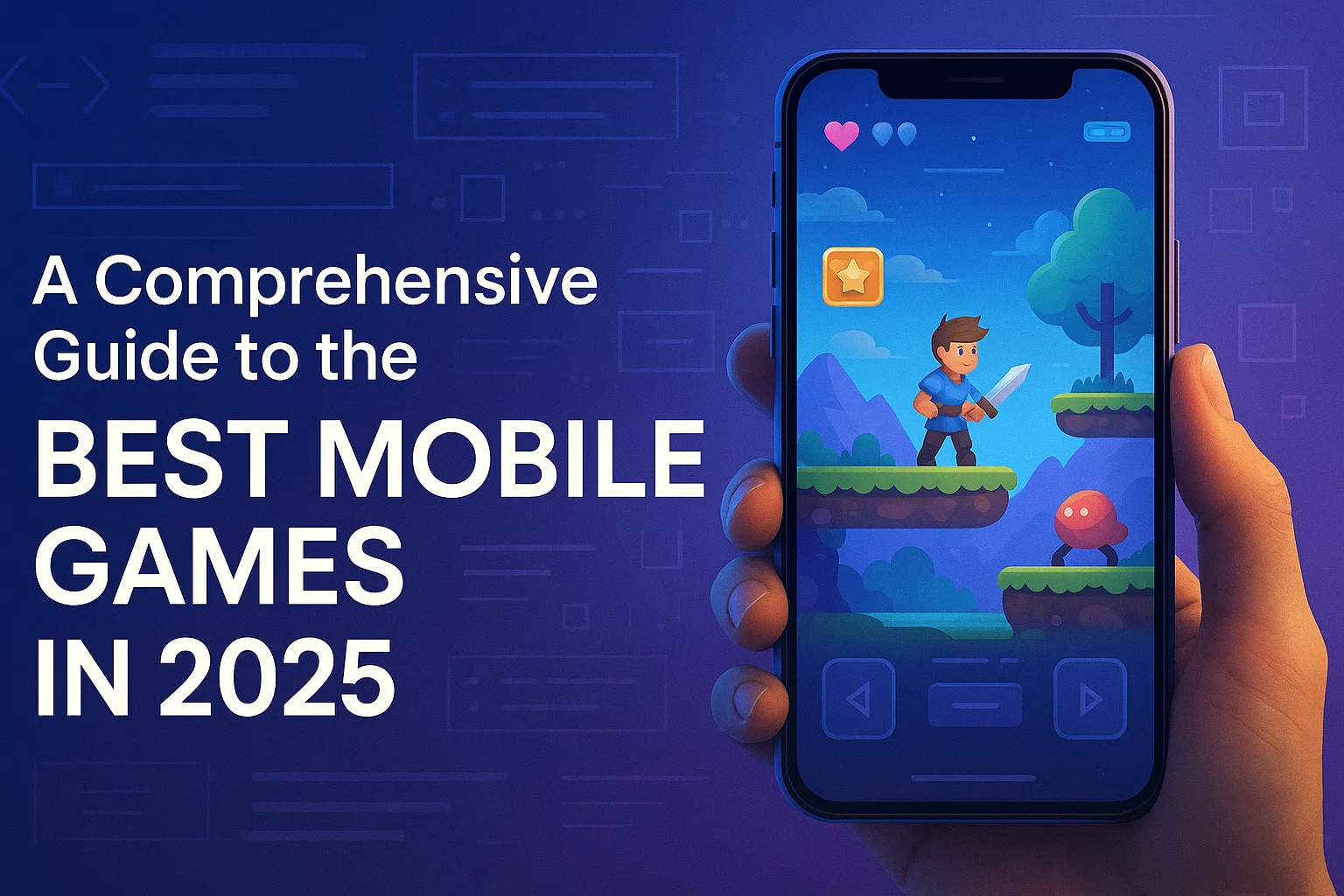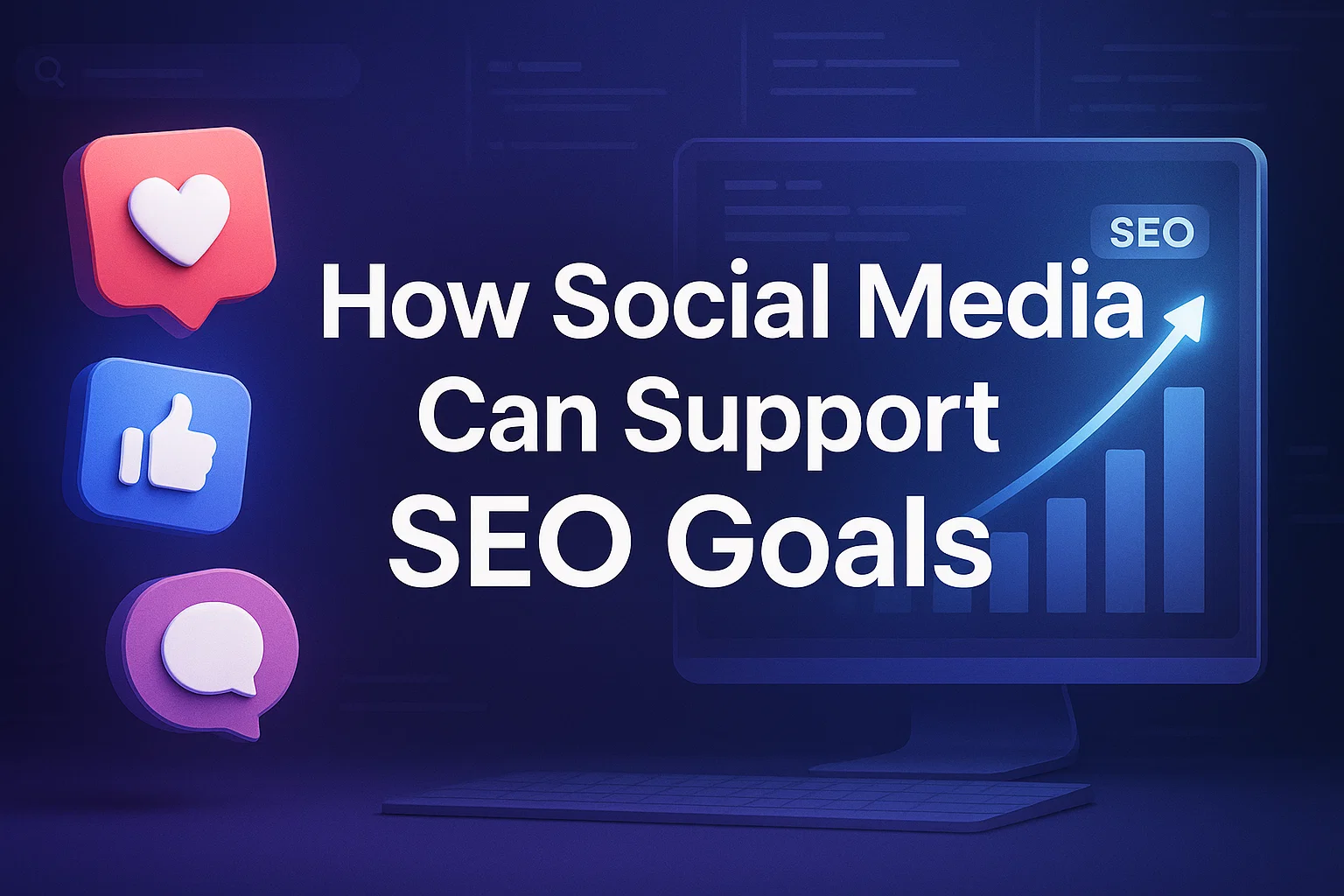
How Social Media Can Support SEO Goals

In today's digital world, organizations frequently treat SEO (Search Engine Optimization) and social media marketing as distinct entities. While SEO optimizes your website for search engines, social media marketing engages with people across several platforms. But what if these two effective marketing methods could compliment one another?
In today’s digital world, organizations frequently treat SEO (Search Engine Optimization) and social media marketing as distinct entities. While SEO optimizes your website for search engines, social media marketing engages with people across several platforms. But what if these two effective marketing methods could compliment one another?
Despite their differences, social media and SEO may work together to improve your overall online exposure and success. Many companies feel that social media traffic does not convert well enough to make SEO campaigns. However, creating a strong social media presence may be an excellent technique for achieving your SEO goals.
In this post, we’ll look at how social media may help you achieve your SEO objectives, making it a crucial part of a larger digital marketing strategy.
1. Driving Traffic to Your Website

One of the most simple ways that social media may help your SEO strategy is to drive traffic to your website. When you publish blog pieces, product pages, or services on social media, your audience has immediate access to your content. This increase in traffic indicates to search engines that your site is popular and engaging, perhaps improving your organic search ranks.
Even though Google does not recognize social media links as traditional backlinks, the organic flow of traffic can boost other significant metrics, such as time on page and bounce rate, and overall engagement. Suppose you post a new blog post on Twitter or Facebook that generates a buzz in the form of clicks and interactivity. Such early engagement can push for faster indexation and better ranking on SERPs.
How It Works
- Sharing content on social media can bring instant, targeted traffic to newly created pages.
- If the users know your brand from other social channels, then there is all the more probability that users would be interested in content published on that site, and thus increasing time and decreasing bounce rates.
- Although good user behavior may include things like a person spending time on a page or multiple pages visited by a user, this still sends the right signals to Google’s RankBrain algorithm and is likely to generate better rankings.
2. Improving Branded Searches

Branded searches, in which individuals insert your brand name specifically, are a reliable sign of authority and trust. An active and engaging social media presence may raise brand recognition, prompting more users to search for it on Google. This not only increases your brand’s visibility but also strengthens your site’s authority in the eyes of search engines.
Branded social media profiles are often covered in the branded search results, which means that if someone’s searching for your company they will likely be able to see your social profiles on the first SERPs page. These offer secondary channels by which potential clients can engage with your business and which helps to create trust and authority.
How It Works
- Regular engagement on sites like Instagram and Facebook, and indeed LinkedIn, boosts branded searches.
- Interactions on social media that catch interest in your brand will drive people to search for your brand name and drive relevance for search engines.
- Having consistency with social profiles and website information such as name, address, and phone enables local SEO efforts, especially for businesses with a physical location.
3. Building Links Through Social Media Engagement

Link building is an essential component of SEO, and social media may help you create relationships with influencers, bloggers, and website owners. While social shares do not qualify as backlinks, they do boost the chances of receiving links from other websites. The more your content is shared, the more visible it becomes. This can lead to more individuals discovering and connecting to your content from their own blogs or websites.
For example, when an influential account re-tweets or shares your post, it is quite likely that the followers would find value in it and link back to that article, helping you build backlinks. You can sell your guest posts to others on social media if they agree to give you a backlink on your site.
How it works
- Reach your great content using your social following, standing a higher probability of getting backlinks.
- With social media engagements, you can develop relationships that can lead to opportunities for guest postings or collaborations.
- Shared social media increases the range of your content distribution, meaning many would see it, discover it, and consequently link back to it.
4. Improving Content Distribution and Visibility

Distributing content is an excellent way to leverage social media while increasing your on-site SEO efforts. A robust content marketing strategy includes the sharing of blogs, infographics, and videos across social platforms so that your content has more chances of going live in front of an audience. The more your content is seen and shared by people, the more it gets exposed, which improves search rankings indirectly.
Social media also gives real-time feedback on what connects with your target audience. Posts that do well on social media might help you plan your future content marketing strategy. For example, if a specific blog post or infographic receives a lot of attention, you may build on it on your website, providing more extensive, relevant information to your audience.
How Does It Work?
- Social media provides an opportunity for fast content distribution and response.
- Use social engagement metrics to measure whether the content is effective or not and modify your SEO strategy.
- Viral content on social media will get you sharing it more, liking it more, and commenting on more, that is the traffic driven back to your site.
5. Support Local SEO

Social media is such an important local SEO tool, especially when your business has a local presence. You can geotag the posts, stories, and ads using Facebook, Instagram, and the other platforms to enhance brand visibility in local searches. Social sites also allow you to collect client feedback, which are vital for local search rankings.
Citations are important to local rankings, and consistent NAP (Name, Address, Phone) data across social profiles and your website is key. Also, there are positive social media reviews and local engagements, such as check-ins and geotagged posts.
How It Works
- You include the NAP information on your social profiles so that you can allow consistent citations in local areas.
- Collect good social reviews of customers from your social platforms so that you show them, thereby allowing your local search rankings to be strong.
- Use geotags in order to achieve much more local engagement which helps to engage more local traffic to your site.
6. Generate New Content Ideas

Your social media presence may serve as a source of inspiration for new content ideas that connect with your target audience. Social listening, paying attention to what the public is saying on social media may help you identify problems, queries, or trends that you can address in blog posts or site content.
This way, you’re engaging your audience through comments, direct messages, and polls; simultaneously collecting feedback for ideas about future content. That gives you a direct interpretation to move into an SEO strategy to make sure you’re creating content answering real questions from your audience.
How It Works
- Social listening gathers insights on the needs and pain points of your audience.
- Come up with a content calendar using conversation from the audience. Use the knowledge of SEO, therefore, come up with content answering specific questions.
- Track engagement posts and come up with topics that will be liked by your audience. You can then come up with detailed content on the topic.
7. Build Brand Authority

Having a huge engaged following on social media can make your brand seem like an authority in a certain niche, which supports SEO indirectly. When the search engine identifies the brand as highly recognized and searched, it is able to rank a website better for those keywords. An authoritative brand with a wide online presence through social media is likely to do well in SERPs especially branded and industry-specific keywords.
How It Works
- Engaged social media fans may help build your brand’s authority, thereby enhancing SEO.
- The more people look for your brand, the more Google considers it important and authoritative, which in return increases your rankings for branded and non-branded terms.
- Constant interaction with industry influencers will boost your credibility and benefit your SEO plan.
Key Takeaways for Businesses
While social media may not directly affect your SEO results, its impact is clear. Whether you’re sharing information to raise exposure, creating backlinks, or simply developing trust with your audience, social media has the potential to help your SEO efforts in a variety of indirect but useful ways.
Here are some last suggestions on how to optimize your social media for SEO:
- Use your high quality content across multiple channels to maximize views and engagement.
- Interact with shares and conversations by extending your reach with the content.
- Ensure that your profile will be active and engaging when they appear in a branded search result
- Track social media analytics to know what works best and adjust your strategy as you learn from it.
Conclusion
Social media and SEO may appear to be two distinct worlds, but when combined strategically, they may become an effective marketing force. A good social media presence may help your SEO efforts by increasing traffic, enhancing engagement metrics, aiding with link building, and boosting your brand’s online authority.
To take advantage of this unity, ensure that you have an active and engaging social media strategy that supports your SEO objectives. Over time, you’ll discover that combining social media with SEO gives a comprehensive strategy for boosting your digital presence and attaining long-term success in search results. VrdApps helps you strategically combine social media and SEO to boost your online visibility and achieve long-term success.


